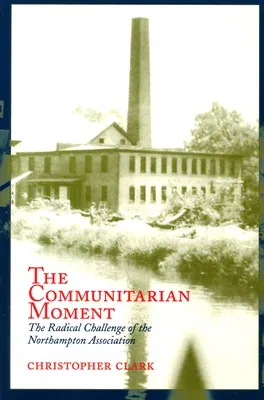Christopher Clark
(Author)The Communitarian Moment: The Radical Challenge of the Northampton AssociationPaperback, 10 November 2003

Temporarily out of stock
Free Delivery
Cash on Delivery
15 Days
Free Returns
Secure Checkout

Print Length
269 pages
Language
English
Publisher
University of Massachusetts Press
Date Published
10 Nov 2003
ISBN-10
1558494162
ISBN-13
9781558494169
Description
Product Details
Author:
Book Format:
Paperback
Country of Origin:
US
Date Published:
10 November 2003
Dimensions:
22.61 x
16.1 x
1.85 cm
ISBN-10:
1558494162
ISBN-13:
9781558494169
Language:
English
Location:
Amherst
Pages:
269
Publisher:
Weight:
458.13 gm